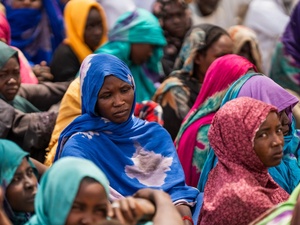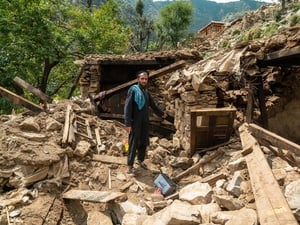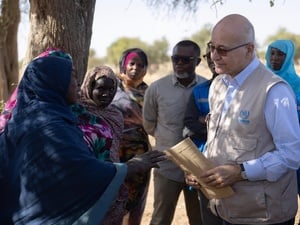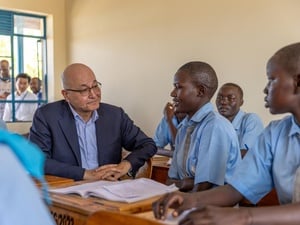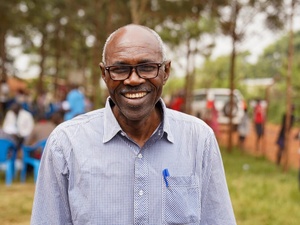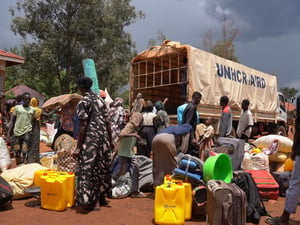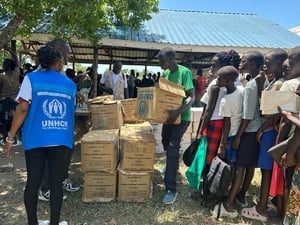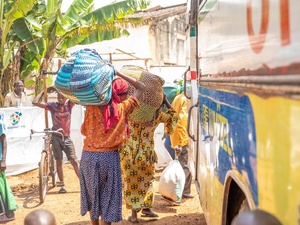UNHCR concerned about latest violence in Kenya's Rift Valley
UNHCR concerned about latest violence in Kenya's Rift Valley
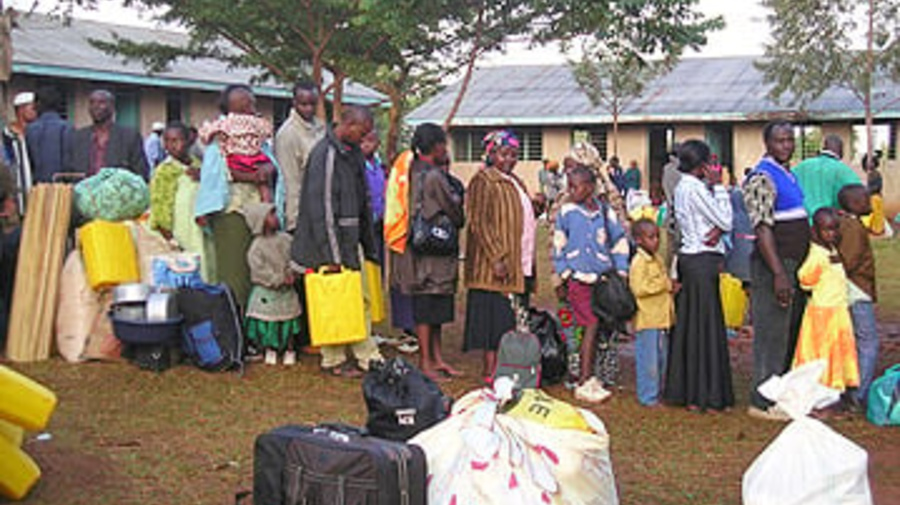
Kenyan refugees in Busia queue before boarding buses that will bring them to Mulanda transit centre in Uganda.
NAIROBI, Kenya, UNHCR, January 29 (UNHCR) - The UN refugee agency said on Tuesday it was very concerned about the worsening security situation in western Kenya's Rift Valley Province. In the last few days, this has hindered access to increasingly vulnerable groups of internally displaced people (IDPs).
On Monday, UNHCR and International Organization for Migration (IOM) were forced to call off a planned evacuation of up to 400 people from Timboroa, an area some 60 kilometres from the Rift Valley town of Eldoret. An estimated 11,000 fresh IDPs fled to the area following weekend attacks on their homes.
UNHCR had expected to work with IOM and other agencies to register IDPs wishing to leave the area and explain to them their options regarding evacuation. A similar evacuation of IDP families wishing to leave the Naivasha area north-west of Nairobi has also been postponed due to the security situation.
Security permitting, an inter-agency team including a UNHCR site planner was to attempt on Tuesday to get to Timboroa to begin the demarcation of an identified IDP site that could accommodate up to 2,000 people in the area.
"It is a pity that our efforts to access the most affected internally displaced persons are being hampered by insecurity that has affected most parts of the country," said Liz Ahua, UNHCR's representative in Kenya. "We hope that the situation will soon improve because people are suffering out there and must be assisted."
Last week, UNHCR provided assistance with a similar evacuation exercise at the Jamhuri Park in Nairobi .A total of 1,813 IDPs voluntarily registered to be relocated from Jamhuri Park to their homes or to live with relatives in other areas of Nairobi. IDPs were transported using buses hired by IOM from Jamhuri Park to drop-off points located in various city estates.
In neighbouring Uganda, meanwhile, UNHCR and partners have relocated 1,050 Kenyan refugees away from border areas in the south-east of Uganda to a transit centre in Mulanda, some 35 kilometres inland. The refugees have been moved from the border towns of Busia, Malaba and Lwakhakha.
The relocation exercise was launched last Wednesday to transfer an estimated 6,500 Kenyan refugees who have fled to Uganda since the outbreak of post-election violence in Kenya. Many of those who opted to move to Mulanda were living in two primary schools in Busia and Malaba. Women and children slept in the classrooms while men slept in tents erected on the playground. These schools are now empty.
In readiness for the new school year in Uganda, an NGO has begun rehabilitating the school in Busia. At the same time, UNHCR is now transferring relief supplies that had been stored in the schools to the new transit centre.
These supplies will be used at Mulanda, now hosting nearly 400 families. Refugees in Mulanda have been registered and provided ration cards which entitle them to food, basic household commodities and other services at the transit centre. Each family has been allocated a tent.
UNHCR will continue to provide transportation to Mulanda for other Kenyan refugees who may approach the UN refugee agency for assistance to get to the transit centre. Unknown numbers of refugees have opted to remain in the border towns where they are living with friends and relatives. Some of them had expressed an interest to stay close to the border where they can more easily monitor developments inside Kenya.
The refugees who have moved to Mulanda are expected to remain there for several weeks. Their return will depend on developments in Kenya and if things do not improve, they will be offered the chance to move to long-established refugee settlements in western Uganda.
Uganda currently hosts more than 216,000 refugees, mostly from neighbouring Sudan, the Democratic Republic of the Congo and Rwanda. The country is also coping with 850,000 internally displaced persons.
By Millicent Mutuli and Emmanuel Nyabera in Nairobi, Kenya


